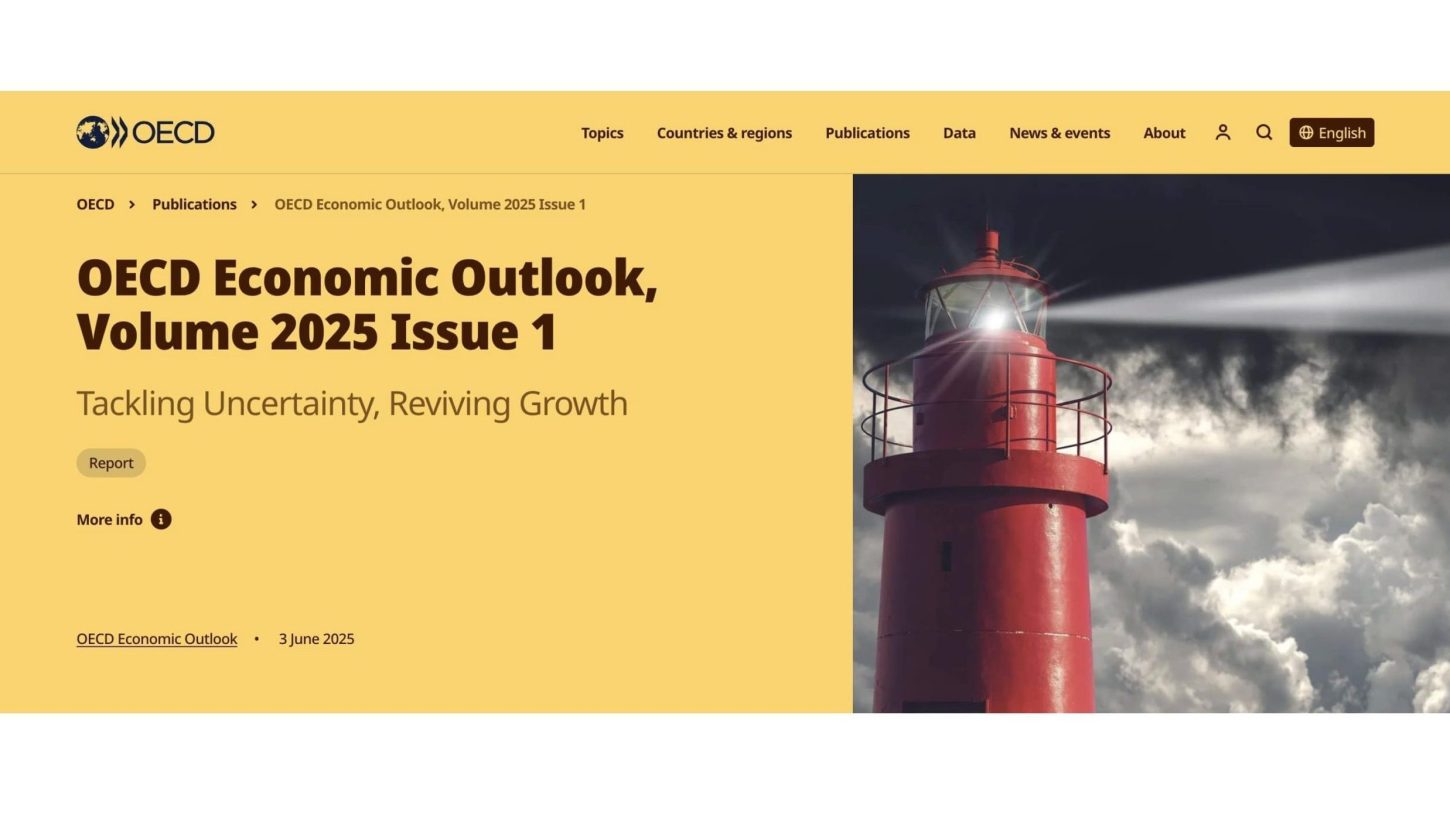The OECD’s June 2025 Economic Outlook paints a grim picture of a global economy losing steam under mounting trade uncertainty, with growth projections downgraded across most major economies. But for TUAC, the greatest danger lies in the policy choices being made to address it – particularly the OECD’s continued emphasis on deregulation and fiscal consolidation.
It is positive that the OECD endorses continued monetary policy easing at this stage. But TUAC is concerned about the reflections of the Economic Outlook on the potential risk of a wage-price spiral, and considers them unwarranted:
Such a spiral has never occurred during the ongoing cost-of-living crisis, while firms have posted record profits. Today, we’re staring down the risk of another recession, where workers would be once again the first to pay the consequences.
TUAC also disputes the OECD’s assertion that only one-third of the investment gap since the global financial crisis (GFC) is due to weak demand. TUAC argues that this underestimates the importance of demand-side factors that keep businesses extremely cautious about investment.
While OECD analysis identifies causes such as policy uncertainty, rising market concentration, and the difficulties in financing intangible assets, it also attributes it strongly to corporate preference for dividends distribution and share buybacks over productive investment.
Encouragingly, the OECD lists the positive long-term impacts of public investment – particularly in R&D, health, and education – on private sector outcomes and overall economic wellbeing. TUAC supports this line of analysis, which acknowledges the role of public-led investment to stimulate demand, support employment, and facilitate the green and digital transitions.
On the other hand, trade unions are deeply concerned by the OECD’s continued call for supply-side reforms and fiscal tightening. TUAC criticises the traditional menu of deregulation and deficit reduction, warning that cutting public spending and easing business regulations risks deepening inequality and undermining long-term growth. TUAC is particularly alarmed that the OECD cites the US “DOGE” deregulation initiative as a potential model, despite widespread concerns about its legality, accountability, and conflicts of interest.
TUAC also finds that the OECD assessment fails to recognise that the roots of current trade imbalances lie in weak domestic demand, which requires an expansionary fiscal and monetary agenda and policies that strengthen labour in the economy:
Rather than continuing to prioritise deregulation and austerity – policies that have left global growth subdued for decades – governments should focus on boosting incomes, strengthening collective bargaining and accelerating green and sustainable investment.
Read TUAC’s full analysis here.

